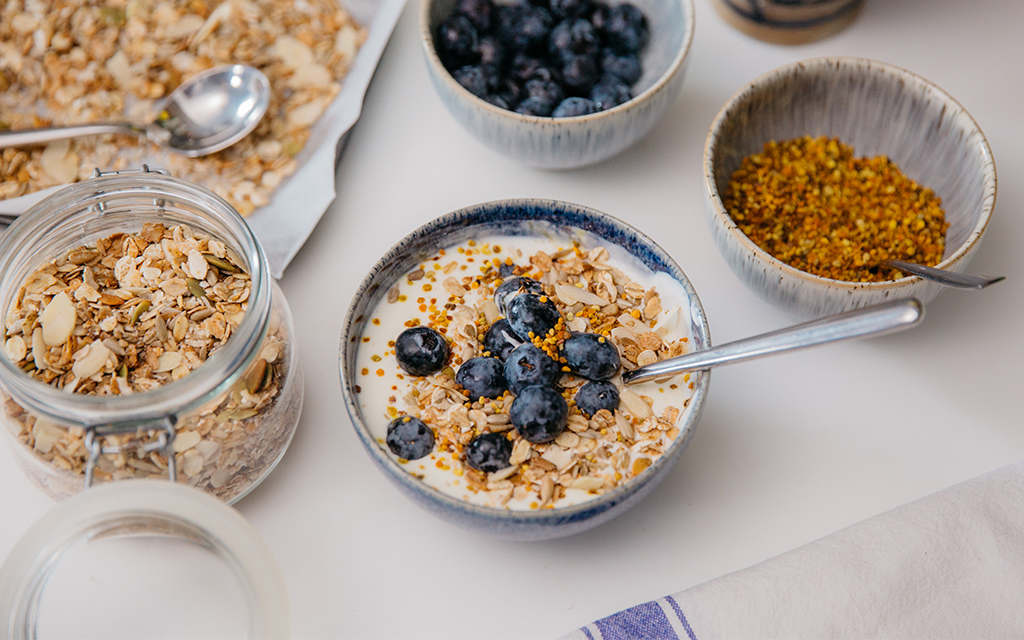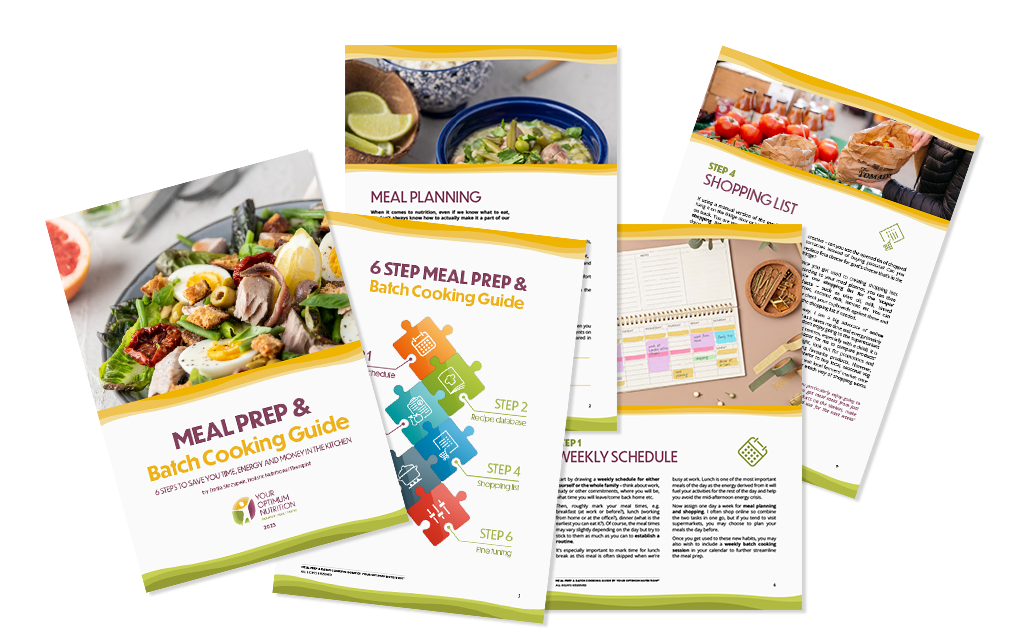3 Dietary Habits That Will Transform How You Feel in Just a Few Days
4 June 2023

LET ME READ THIS ARTICLE FOR YOU
Hi friends!
Let me share a short story with you.
About a month ago, we celebrated my adorable neighbour’s 5th birthday at the local children’s farm. While the kids played, the parents got to know each other over some snacks and a cup of coffee. After chatting for a while about what we did for a living, one Dad asked me a really interesting question:
“What’s the one food I need to stop eating to feel better?”
Thankfully, I was well-prepared, because people ask me this all the time.
In my opinion, there’s no specific item of food that you need to give up forever. In fact, I don’t even like to label them ‘good’ or ‘bad’ – they all have their place on our menus as long as they are eaten in moderation as part of a balanced diet.
Instead, I left him with the first piece of advice I often focus on with new clients:
It’s about meal timings.
Skipping breakfast, having lunch on-the-go, and sitting down to eat a big dinner late in the evening are cultural norms for us, further solidified by our hectic lifestyles, busy work schedules and how difficult it can be to prioritise mealtimes.
If I could only share one piece of advice that would change how you feel for good in just a few days, I would ask you to flip this pattern on its head, and follow this century-old saying:
‘Breakfast like a king, lunch like a prince, and dine like a pauper.’
Starting the day with a complex meal and eating smaller and simpler things as it goes on, can benefit you for many reasons, but here are the main two:
1
All of your organs, including those involved in digestion, absorption and elimination, have different peak times during the day. As a guide, these systems are most active between 7 am – 7 pm, when they release high levels of enzymes, bile and related hormones.
For that reason, we can all get away with so much more during the first part of the day. Whatever isn’t digested before going to bed, sits in the stomach, which may disturb our sleep, or cause heartburn, bloating, uncomfortable bowel movements, and tiredness the next day.
2
Since food gives us the energy that we need to perform our everyday tasks, both physical and mental, it just makes sense to eat for what’s to come, rather than fill our bodies with fuel to relax on the sofa or go to bed. Whatever energy isn’t used during the day, is likely to be stored as fat, which, if left unmanaged, can contribute to how you feel and cause health issues.
By moving mealtimes earlier and making sure our last meals aren’t our biggest, our bodies are able to fast overnight – allowing them to balance our blood sugar levels, grow and repair.
To summarise, eating regular meals throughout the day enables us to fully digest our food, absorb it properly, and keep our energy levels consistent.
This simple change also regulates our appetite, reduces the need for cravings, and increases focus and mood. (Think back to how stress has affected you when hungry vs. well-fed!)

Here are 3 tips that are likely to improve your energy and digestion:
1 If you’re not used to having breakfast, try eating a small meal 2-3 hours after waking up.
By mid-morning, most people experience a sudden drop in blood sugar levels, which can manifest as tiredness, irritability, and cravings for sweet treats.
Nip breakfast in the bud, and avoid feeling like you just want to kill everybody!
Porridge is perfect, or a porridge-based smoothie if your appetite is very low. Scrambled eggs or leftover dinner is also totally fine – whatever works for you. (Warm food is the best option, but that’s a story for another time!)
2 Ensure you have time for an uninterrupted lunch.
A lot of us forget to eat, which leaves us feeling rubbish and craving comfort in the form of junk!
Taking as little as 15 minutes to step away and focus on food can have a huge impact on your health, so why not treat it as you would a meeting with a client, and pop it in the calendar.
Being mindful around mealtimes, however short, allows our bodies to recognise our eating patterns, and better prepare for the digestive processes to begin.
3 Sit down for dinner by 7 pm as often as you can.
I work with many parents who only look after themselves once they’ve finished looking after their kids. This means bath-time, story-time, bedtime, and tidying up comes before sitting (or falling!) down to eat.
Sure, life gets in the way, and this is a real challenge for many, so let’s break it down –- how about moving your dinner up by 15 minutes this week? Then, if that works, scooch it ahead again.
If you’re a parent, why not try eating at the same time as your kids?
Planning meals and preparing ingredients ahead of time, may mean you are able to significantly speed-up dinner preparation.
Whatever your situation, name your obstacles and it may be easier to find the right solutions!
P.S. I consider establishing a regular routine as a cornerstone of health. I also recognise that knowledge (e.g. knowing what to eat) rarely translates into habits.
That’s why I created this Meal Planning and Batch Cooking Guide to share exactly how to organise your time around meals to feel well.

Get started today!
This free Meal Planning & Batch Cooking Guide will get you on track to make positive changes to your diet and lifestyle.
You may like these too
What You REALLY NEED When Expecting or Having a Baby
I recently met a friend who’s in her 32nd week of pregnancy and she asked me how to best prepare f
3 January 2024
Bogged down with a ‘bug’? Reflections on embracing and gaining insights from illness.
Hello Winter, the Season of Colds, Flus and other Ailments! Have you ever faced that unwelcome bug t
27 December 2023
How to Make the Most of the Festive Season
Christmas is just around the corner! We all have different plans and ways we enjoy or celebrate Chri
27 November 2023
Dear Mum, Are You Tired All the Time? Check Why!
One of the most overwhelming and debilitating parts of being a new mum is the tiredness that comes w
14 November 2023





